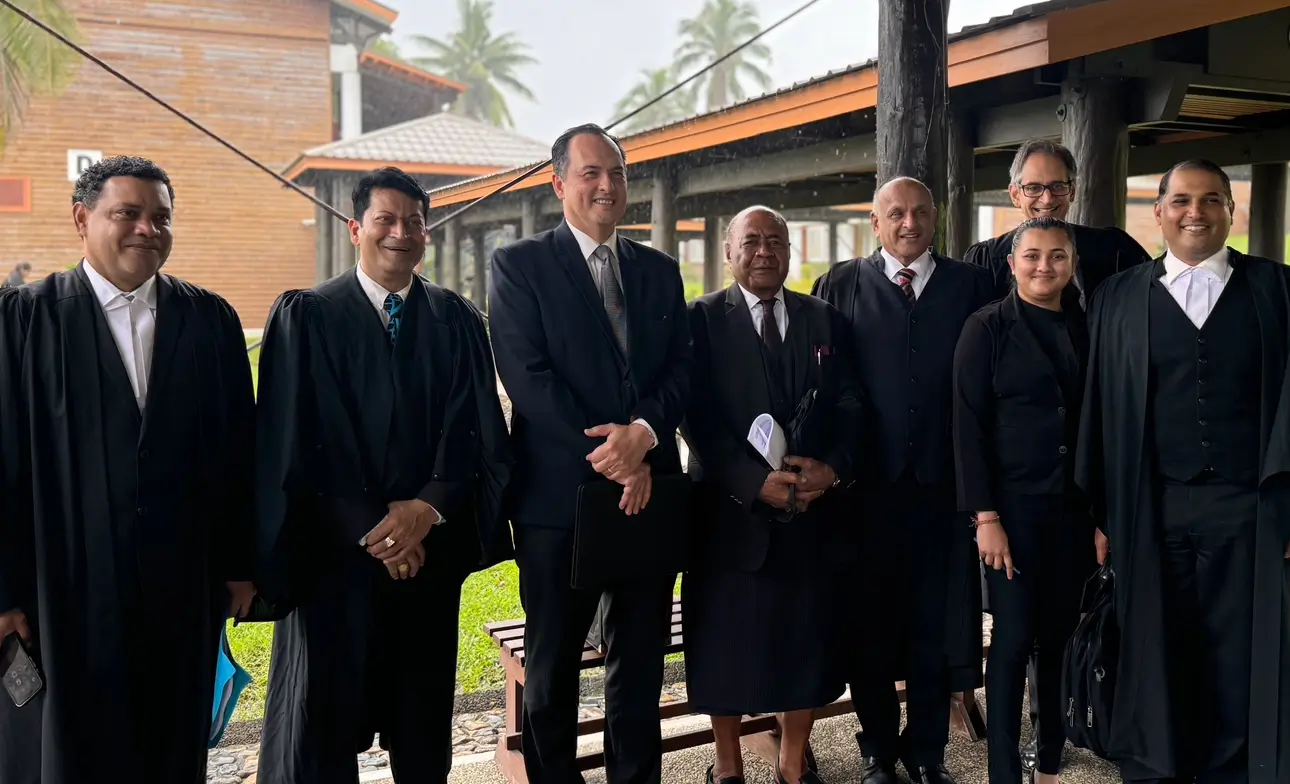Fiji’s Supreme Court has ruled that John Rabuku is not qualified to hold the office of Fiji’s Director of Public Prosecution(DPP) as he is not qualified to be a judge as required by section 117(2) of the constitution.
The Supreme Court gave its opinion that Rabuku is not eligible for judicial appointment by virtue of disciplinary proceedings disqualification in Section 105(2)(b) because he was sanctioned for professional misconduct in a disciplinary proceeding.
The court has also given the opinion that Justice Qetaki was eligible for appointment as a judge of the Court of Appeal because he was not sanctioned for professional misconduct.
This matter was referred by the cabinet and an opinion was sought in regards to the interpretation of section 105(2)(b), 114 (2), 116 (4) and 117 (2) of the Constitution.
This is in particular to, whether an Independent Legal Services Commission finding in a disciplinary proceeding instituted against a legal practitioner, is consistent with the intended finding of guilt in the constitutional provisions.
The context in which that opinion was sought relates to the appointment of John Rabuku to the office of the Director of Public Prosecution and Alipate Qetaki to the office of the Judge of Court of Appeal.
The court noted that Rabuku was appointed DPP in 2023 while Justice Qetaki was appointed as Court of Appeal Judge.
Justice Brian Keith today stated that the Constitution sets out the conditions for eligibility for appointment to a number of important public offices.
Justice Keith said that eligibility for appointment as a judge is governed by section 105 of the Constitution.
The Judge noted that the two had admitted professional misconduct in disciplinary proceedings before the Independent Legal Services Commission.
Rabuku’s conduct has been described by the commission as very serious as he was publicly reprimanded, suspended from practice for three months and fined $500 (US$250).
The Supreme Court Judge stated that the view which the commission took of Justice Qetaki was different as he had failed to ask the Attorney General’s approval to open a trust account in connection with his legal practice as required by the Trust Accounts Act.
The Judge also stated that the bank opened the account before the approval had been obtained.
The Judge said the commission had said that Justice Qetaki would not have contravened the Trust Account Act at all if the bank had not opened the account prematurely.
In light of this the commission decided that this was not a case for any sanction to be imposed on Justice Qetaki.
Justice Keith said cabinet’s reference to the Supreme Court focused on the meaning of the words found guilty of any disciplinary proceedings in section 105 (2)(b) of the constitution.
The Supreme Court Judge said if those words mean that someone is ineligible for appointment as a judge if they have been found to have committed professional misconduct, neither Rabuku nor Justice Qetaki were eligible for appointment but if they mean that someone is ineligible for appointment as a judge if they have been found to have committed professional misconduct and have had a sanction imposed on them for that conduct only Rabuku was ineligible for appointment, and not Justice Qetaki.
The Supreme Court Judges concluded that section 105 (2)(b) of the constitution should be interpreted as referring to an adverse finding of a kind which resulted in a disciplinary sanction.
Meanwhile, Graham Leung was sworn-in as the new attorney general in Parliament today.
Leung who takes up the position from Minister of Justice Siromi Turaga promised to uphold the constitution and laws during his stints as the Attorney General.
Speaker of Parliament Ratu Naiqama Lalabalavu congratulated Leung after being sworn-in.
He will deliver his maiden speech on Monday, 08 July.














